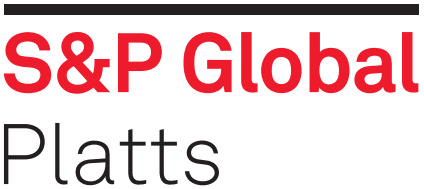
IndustriAll Europe, the federation of EU labor unions, has called for the European Commission to strengthen European steel safeguard measures to prevent thousands of tonnes of cheap steel being dumped onto the EU open market, the federation said in a letter addressed to the EC and seen by S&P Global Platts.
IndustriALL stressed how COVID-19 is having a massive impact on the steel sector with European steel production being reduced by 50%, resulting in workers being placed on short-time working hours or being subjected to temporary lay-offs. According to the association, there has been a huge cut in new steel orders (down 70-75%) that has led to the idling of steel plants and even the shutdown of production.
“While Europe has been suffering, other countries continue their production and even stockpile their products. Indeed, China managed to increase their production by 3% in January and February 2020. There are real concerns that some countries will use the COVID-19 pandemic as an opportunity to build up their capacities, increase their stockpiles and flood the open EU market,” the federation underscored in its letter.
IndustriAll Europe therefore called on EU policy makers to update the current EU steel safeguard measures to bring them in line with the decline in EU steel demand.
“The existing tariff-rate quotas are no longer relevant, and in particular, we call for a reduction in these quotas by 75% for Q2 and Q3 in 2020. Should this not happen, we struggle to see how the industry in Europe, and its thousands of workers, will be able to get back on their feet. European workers and their families continue to suffer dreadfully during this health crisis, and we need the EU institutions to demonstrate that they are working together, are representing all member states and are standing up for workers in Europe in times of crisis,” the union federation stated.
At the beginning of April European steel federation Eurofer asked the EC to review the current import safeguard quota asking that quota volume be reduced immediately by around 75% and for a period of six months in order to “align them with the devastating situation.”
The tariff level of 25% could be reduced after a review of the situation for the last quarter of 2020 and beyond.
Eurofer also proposed to implement emergency import restrictions outside the context of safeguard measures, as permitted under Article XXI of the GATT 1994 agreement. The safeguard measures do not cover products imported from undeveloped countries.
The latest import data available from Eurofer show that EU imports of hot-rolled coil in February, the latest full month for which data is available, amounted to 533,519 mt, a decrease of 22% from January and 11% lower than February 2019.
However, Russia increased shipments by 2,187 mt to 166,353 mt, which was enough to push Turkey from the top spot in February in volume terms, a position which it has held since November 2019.
Imports from Turkey decreased in February by 108,000 mt to 138,000 mt, while South Korea saw its HRC volumes surge 31% higher in February to 43,389 mt.
The EC Safeguard quota balances, which were refreshed on April 1 and run on a quarterly basis, allow some insight into more recent import activities and show a collective inflow in HRC of 283,000 mt in the two weeks to April 16, with Russia remaining the leading supplier to the bloc.
Price performance for domestic and import material has fallen with import offers heard at increasingly aggressive levels pressuring domestic prices lower.
The Platts TSI index for HRC was assessed Monday at Eur450.50/mt exW Ruhr, a decline of EUR32/mt since March 2.
Over the same period Platts assessed HRC imports basis CIF Antwerp Eur82/mt lower to Eur410/mt Monday.
The IndustriALL Global Union represents 50 million workers in 140 countries in the mining, energy and manufacturing sectors and is a force in global solidarity taking up the fight for better working conditions and trade union rights around the world.
— Annalisa Villa, Len Griffin




